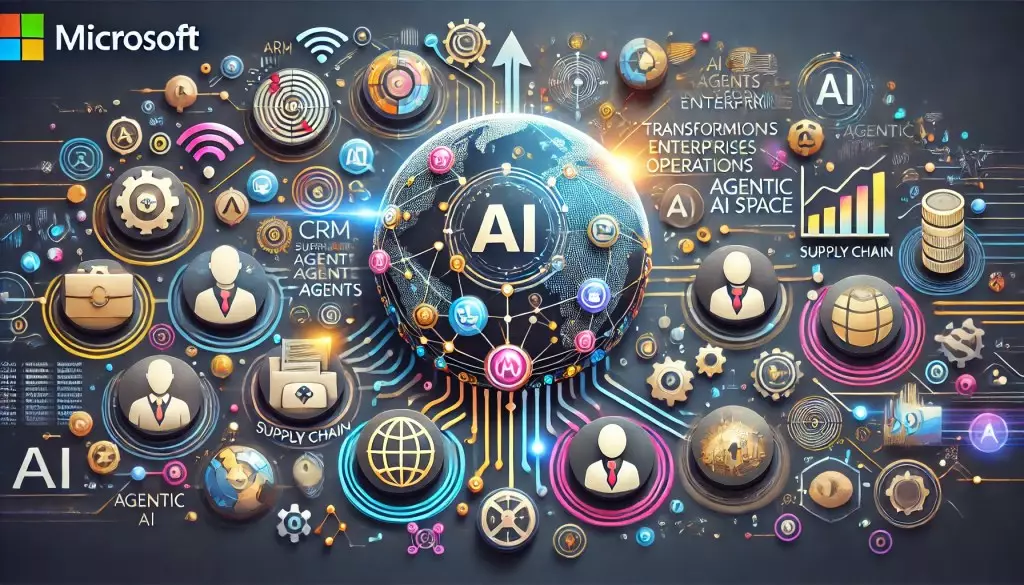The recent Ignite 2024 event has positioned Microsoft at the forefront of enterprise AI technology by heralding the availability of 10 autonomous AI agents tailored for enterprise utilization. This announcement is not just a minor update; it signifies a watershed moment in the evolution of AI, suggesting that these agents are no longer mere prototypes or theoretical constructs, but viable tools ready to integrate into complex business workflows. In a landscape where competitors like Salesforce and ServiceNow have introduced AI functionalities, Microsoft’s launch underscores a far-reaching commitment to scalability and accessibility within its AI solutions.
Microsoft has crafted a suite of pre-built AI agents designed to address distinct enterprise functions that span critical operations such as Customer Relationship Management (CRM), supply chain logistics, and financial processes like reconciliation. Unlike many existing AI toolkits that demand extensive customization before they can be effectively employed, Microsoft’s agents come pre-configured for immediate deployment. This strategic choice is likely to save businesses time and resources, which is particularly appealing in a fast-paced corporate environment where agility and efficiency drive competitive advantage.
Furthermore, Microsoft has anchored its autonomy with a vast ecosystem of 1,400 third-party connectors, fostering an extensive network that enables these AI agents to function seamlessly across various platforms. The inclusion of over 1,800 large language models speaks to the adaptability and customization that enterprises can implement, allowing organizations to pick and choose the most suitable AI configurations for their specific needs. This adaptability inherently makes Microsoft’s offerings stand out in the crowded marketplace of enterprise AI solutions.
The momentum behind Microsoft’s AI agents is also underscored by impressive adoption metrics. According to the company, a staggering 100,000 organizations are currently engaged in either creating or modifying AI agents, revealing not only a booming user base but also a doubling in deployment rates over the past quarter. Such figures not only dwarf the adoption metrics of competitors but also raise the stakes for other players in the enterprise AI arena.
As the competition heats up, it’s essential to examine how Microsoft’s positioning grants it a decisive edge over notable competitors like Salesforce, Google, and Amazon Web Services (AWS). By leveraging its vast ecosystem of productivity tools and a solid customer base, Microsoft presents enterprise clients with solutions that are not only comprehensive but also enmeshed within existing workflows. This seamless integration enables Microsoft to redefine what companies expect from AI in terms of functionality and ease of access.
Microsoft’s foray into the AI landscape is not only a challenge to established competition but also a serious disruption to startups that have historically carved out niches within specific domains such as CRM or time management. By offering agents with targeted capabilities, the company is effectively raising the bar for industry standards, compelling smaller players to adapt or pivot in response to a rapidly changing market.
Moreover, the transition from conventional pricing strategies based on “per token” usage to more outcome-based pricing models such as “per message” reflects Microsoft’s shift towards a results-driven approach. This evolution suggests that organizations may soon prioritize the real-world impacts of their AI deployments rather than merely the quantity of data processed—a perspective that may redefine business models in the AI sector.
Looking Ahead: Implications for the Future
While Microsoft stands as the self-proclaimed leader in the realm of agentic AI, the road ahead is far from clear. Competitors, many of whom possess significant resources and innovative capabilities, are closely monitoring Microsoft’s movements and are likely to respond. The dialogue surrounding these developments invites scrutiny not just of Microsoft’s achievements but also of the broader implications for enterprise leaders entrusting their operations to these emerging technologies.
In a three-part video series that delves deeply into the potential impacts of Microsoft’s AI agents on enterprise workflows, thought leaders in the AI space, including developers and industry experts, provide valuable insights. As we witness the transformation of enterprise operations through these AI agents, the ultimate challenge will lie in how effectively organizations can harness this technology to drive efficiency, enhance productivity, and maintain a competitive edge in an increasingly digital marketplace. Microsoft’s strategic maneuvering at Ignite 2024 could very well be a turning point for the enterprise sector, one that prompts an evolution in how companies approach AI as a transformative tool for success.


Leave a Reply